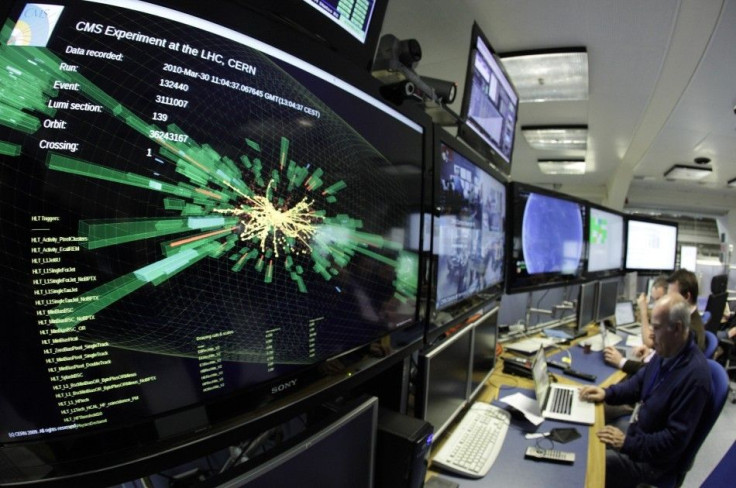'God Particle' Higgs Boson May Not Exist After All: Physicists

The hunt for the elusive Higgs Boson, also known as the God particle which could solve the greatest mystery in physics may end in a non-event.
In July, the European Organization for Nuclear Research (CERN)'s Large Hadron Collider (LHC) has once detected some signs of the particle, puffing up hope for the discovery of the God particle.
The discovery was made when the two teams monitoring the centre's two colliders detected unusual bumps in the 120 and 140GeV spectrum. The scientists quickly noted that the bump could indicate the existence of the particle, which is thought to exist between the 114 and 185GeV spectrum.
Despite the accumulated efforts by scientists, a recent statement released at a conference in Mumbai, India said the LHC's ATLAS and CMS experiments excluded with 95 percent certainty the existence of a Higgs over most of the mass region from 145 to 466 gigaelectronvolts (GeV).
That covers the bulk of the mass range that is easiest for physicists to explore.
At this moment we don't see any evidence for the Higgs in the lower mass region where it is likely to be, Howard Gordon, deputy US ATLAS operations program manager, told AFP.
I think it is true that the hints that we saw in July are not as significant -- they weren't very significant in July -- but they have gotten less significant now, said Gordon.
Higgs boson, the sub-atomic particle fundamental to the understanding the nature of matter, was first hypothesized in 1964 by Edinburgh University physicist Peter Higgs.
As the lynchpin of the modern particle physics theory called the standard model, Higgs Boson is supposed to be giving mass to other particles.
If discovered, Higgs boson will help scientists answer long-held questions like what is the source of mass and why some particles have mass and others don't. It will also help them throw light on the supersymmetric particles and thereby throw light on the investigation into the make-up of dark matter.
Since the July report, LHC has produced more than the double amount of data.
Thanks to the superb performance of the LHC, we have recorded a huge amount of new data over the last month, said Fabiola Gianotti, one of the teams searching for the Higgs.
This has allowed us to make very good progress in our understanding of the Standard Model and in the search for the Higgs boson and new physics.
An updated assessment reveals the excess events are likely to be diminished, as the data sample is built up.
A lot of mysteries shrouding the beginning of the universe are locked in the Higgs boson. If it is not found, scientists will have to change the standard model postulation through which they explained how sub-atomic particles interacted with each other. If the Higgs boson is ruled out, another explanation for how particles get their mass will be needed.
Physicists will now be searching for the boson at lower and higher energy ranges; below 145 GeV or above 466 Gev. Several ranges in the middle, around 250 GeV, have not been fully excluded yet.
These are exciting times for particle physics, commented CERN1's research director, Sergio Bertolucci. Discoveries are almost assured within the next twelve months. If the Higgs exists, the LHC experiments will soon find it. If it does not, its absence will point the way to new physics.
© Copyright IBTimes 2025. All rights reserved.





















